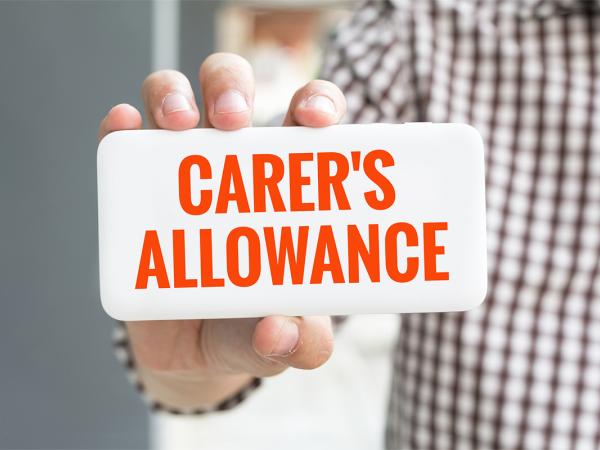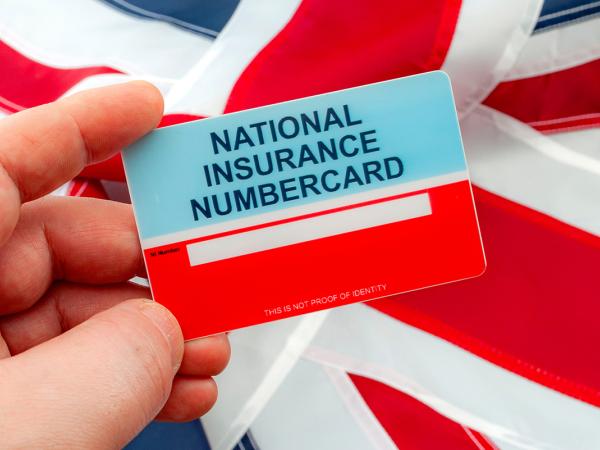National Insurance credits for carers
Caring can have an impact on your finances, particularly if you have had to give up work to be a carer. On this page we look at help towards your state pension by the provision of National Insurance credits for carers.

Content on this page:
National Insurance credits: why they are important for carers
To be eligible for the new state pension, you will usually need 35 qualifying years' worth of contributions to get the full amount. You should be able to get a pro-rata amount provided you have at least 10 qualifying years.
A qualifying year sounds as though you might need to have 52 weeks of working for it to count. In fact, any tax year where you receive a minimum amount of earnings or National Insurance credits can be a qualifying year.
If you are an employee, the 2024/25 tax year could be ‘banked’ as a qualifying year where you have earned the equivalent of 52 x £123 (this amount is known as the Lower Earnings Limit (LEL)) – total £6,396 – however, any pay periods in which you have earned under the LEL will not count. So, for example, if you earn £187.50 a week for 26 weeks of the year, but only £90 a week for the other 26 weeks of the year then although your earnings in total will exceed the annual LEL amount of £6,396, you will not have a qualifying year. This is because your earnings in weeks where you exceed the weekly LEL amount only total £4,875.
Many carers will miss out on qualifying years if they have given up work or have low level earnings because they are looking after someone. Help is available to plug any gaps in a carer’s National Insurance contributions record in the form of National Insurance credits, as we explain below.
Credits available to carers
There are two ways that you can get credits for your National Insurance record as a carer:
- Carer’s allowance – a benefit paid by Department for Work and Pensions to carers who meet the qualifying conditions. This will get you class 1 National Insurance credits.
- Carer’s credit – a National Insurance credit for carers who do not receive carer’s allowance. This will get you class 3 National Insurance credits.
Both of these types of credit count towards the state pension and are explained below.
Carer’s allowance – NIC credits
Carer’s allowance is a benefit available to eligible carers.
For every week that you receive carer’s allowance, an automatic class 1 National Insurance credit will be made to your National Insurance record equal to 1/52nd of the amount that is needed to make a qualifying year that year. In 2024/25, that will be £123. If you receive carer’s allowance for the 2024/25 full year, an amount of £6,396 will be captured on your record and that year will become a qualifying year for the purposes of calculating the state pension.
Class 1 National Insurance credits can also count towards new-style jobseeker’s allowance, new-style employment and support allowance, maternity allowance and some bereavement benefits as well as the state pension.
Not all carers will qualify for carer’s allowance. If you cannot claim carer’s allowance and so cannot get automatic class 1 National Insurance credits, you might be able to claim standalone National Insurance carer’s credits instead, as explained below.
Carer’s credit
Carer's credit might be available if you care for one or more disabled people for 20 hours or more a week and the cared-for person or people receive any of the following:
- Disability living allowance: care component at the middle or highest rate
- Attendance allowance or constant attendance allowance
- Personal independence payment: daily living component, at the standard or enhanced rate
- Armed forces independence payment
If the person you are caring for does not get one of these benefits, you may still be able to get carer’s credit – you will need to fill in a ‘Care Certificate’ which can be found in the application pack.
A Care Certificate is a two-sided form for a health or social care professional to confirm that the person cared for needs the number of hours of weekly care that the carer states they provide.
Please note that you should be able to receive carer’s credit even if you have a break in caring for up to 12 weeks in a row – for example, the person you are caring for goes into hospital.
If you qualify for the carer’s credit, you will be credited with class 3 National Insurance contributions. However, this is not automatic and you have to apply for these credits. Some people miss out because they do not realise they have to apply.
You should note that carer’s credit gives class 3 National Insurance credits, whereas if you are claiming carer’s allowance you will get class 1 National Insurance credits. Both class 1 and class 3 credits count towards the state pension and some bereavement benefits. However, unlike with class 1 credits, class 3 credits do not count towards new-style job seeker’s allowance, new-style employment and support allowance and maternity allowance.
Please note that carer’s credit is not a benefit payment.
Claiming carer’s credit
GOV.UK provides the application form to download (and gives details of how to request a form by post if you cannot download it).
Please note, you do not need to claim carer’s credit if you are:
- already paying enough National Insurance contributions because you are working, or
- already receiving credits because you are receiving a benefit that gives you credits automatically (for example, carer’s allowance, child benefit, etc.)
A claim for carer’s credit can be backdated, but the earliest you can ask for your carer’s credit to start from is the start of the last full tax year. For example, if you complete the application form at some point during the 2024/25 tax year, the earliest date you can ask for your carer’s credit to start from would be 6 April 2023.
More information
Other financial help may be available when you are a carer – we suggest you seek a benefits review from a welfare rights organisation. To get an initial indication, you can use one of the independent benefits calculators referred to on GOV.UK.
If you are a low-income pensioner with caring responsibilities, you may be entitled to some extra money in recognition of your caring role. You can find further details of carer benefits for pensioners from Carers UK.
You can check your state pension forecast on GOV.UK.
Carers UK provides more information for carers generally.



